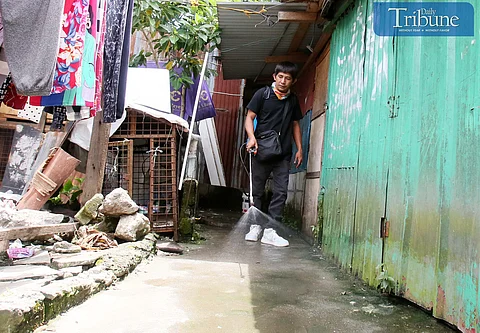
- NEWS
- the EDIT
- COMMENTARY
- BUSINESS
- LIFE
- SHOW
- ACTION
- GLOBAL GOALS
- SNAPS
- DYARYO TIRADA
- MORE

The Department of Health (DOH) on Tuesday reported it has logged over 62,000 dengue cases since January this year.
From 1 January to 1 March, a total of 62,313 cases were recorded by the Health department. This is 73 percent higher compared to the same period in 2024.
Calabarzon logged the highest number of dengue cases (12,735), followed by the National Capital Region (11,291), and Central Luzon (10,185).
The case fatality rate remains lower this year at 0.35 percent compared to 0.42 percent in 2024.
Meanwhile, the DOH recorded a slight decrease in dengue cases from 2 to 15 February (14,163). This is 10 percent lower than the 15,742 cases reported from 19 January to 1 February.
However, the DOH said it expects that the dengue cases in the country may suddenly increase with the arrival of the rainy season.
"We will take advantage of this time to ensure that there is no breeding ground for the Aedes mosquito when the rainy season arrives," DOH Secretary Ted Herbosa said.
Herbosa explained that the Aedes mosquito, responsible for the dengue virus, can reproduce quickly as long as they have water to breed in. The Aedes can lay up to 100 mosquito eggs in just seven days.
Herbosa further advised the public and local government units (LGUs) to continue vector control activities and the eradication of mosquito breeding sites while the rainy season is not yet here.
"Together with LGUs, health workers, and volunteers, the massive cleaning of mosquito breeding areas across the country continues to combat dengue," he added.
